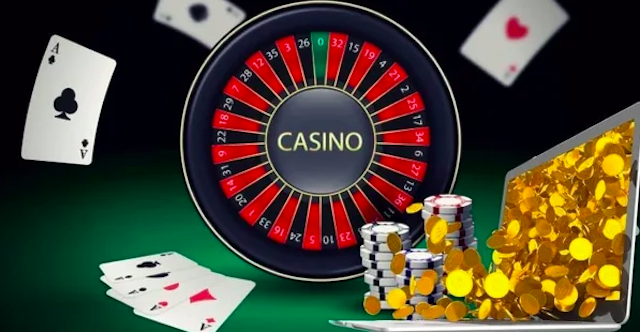Analyzing how gambling games originated, it is necessary to start with slots – one of the most accessible and widely spread formats. The mechanics of slot machines based on random symbols with visual feedback turned out to be maximally attractive with minimal expenses on the part of the participant.
Already in the early XIX century, the first machines gave a sense of chance for a small sum. With the transition to the online format, attractiveness increased due to bonuses, free spins, and high frequency of wins. The economic model allowed to maintain engagement without critical expenses, which played a key role in popularization.
Roulette and the balance between risk and structure
Originating in France, roulette quickly became popular due to its clear structure and wide range of bets. Participants could risk a large sum or limit themselves to a minimum chip, having an equal right to success.
It is in such formats that the essence of the question is reflected – how did gambling games originate, where the choice of participation cost becomes part of the strategy? Betting convenience, bankroll control, and instant results made roulette a stable economic model for operators and an attractive system for players.
How gambling games originated: economic incentives and revenue models
In conditions of limited society resources in all epochs, models allowing to profit through chance were sought. Formats with an element of gambling offered precisely such a structure – investment with the possibility of multiple returns.
In Egypt, Mesopotamia, and China, examples of totalizators, lotteries, and card mechanisms used in temples and markets are recorded.
Poker and the capitalization of strategy
In poker, success is not only about luck but also about the ability to manage resources. Initially, card games were used for redistributing savings within small communities.
In the XVIII century, when poker became popular in Europe, it also served as a means of social filtration – the most rational and restrained participants won. The economic sense solidified with the emergence of professional tournaments, where each contribution formed a common prize pool. Studying how gambling games originated includes examining models where sensible bet management brings results.
Blackjack and chances for a mathematical advantage
The mechanics of blackjack differ in that with a certain level of preparation, the house advantage can be reduced to almost zero. This created a sustainable economic niche around the discipline – education, strategic tables, card counting.
Combined with a flexible betting system, blackjack became an example of entertainment where financial control directly influences the outcome. Therefore, the question of how gambling games originated is answered through the analysis of disciplines that allow building long-term strategies.
Key economic reasons for the popularity of the first gambling games in the Ancient world
Over time, entertainment models with an element of randomness solidified as part of the financial system. Below are the key economic factors that influenced the spread of corresponding formats:
- betting accessibility for all social strata – from minimal investment to large sums;
- quick return of funds in case of winning;
- systematic redistribution of resources among participants;
- opportunity to receive instant income regardless of the level of preparation;
- illusion of control when using strategies and observing results.
These aspects provide additional understanding of how gambling games originated, relying on simple yet effective economic principles.
Cards as a tool for trade and competition
Initially, cards were mainly used in Asia for fortune-telling, but in China and later in Europe, they began to be used for commercial purposes – as a substitute for tokens and objects for transactions. Card games allowed exchanges where the result was determined not only by chance but also by calculation.
In the Middle Ages, card sessions were held between trading clans as a way to resolve disputes. The economic foundation gave cards universality, and discussions on how gambling games originated cannot be separated from the history of symbolic instruments.
Keno and fundraising
The history of keno dates back to Ancient China, where lottery forms were used to raise money for state needs, including the construction of the Great Wall.
This approach stimulated mass participation due to the prospect of a reward. Later, in France and the USA, similar models solidified in the form of charitable lotteries. Keno vividly illustrates how gambling games originated, oriented towards financing major projects with public involvement.
Mahjong as the capitalization of leisure
Mahjong, as a Chinese cultural phenomenon, quickly became a source of income not only for participants but also for organizers. Participation fees were charged, a bank was formed, records were kept, and even tax collections were applied.
Due to its structure, mahjong became part of everyday economic life, especially in Asia. Some aspects of the game have become symbolic, reflecting mythology and traditions: in the design of the tiles, one can find images associated with power – be it Zeus, a pharaoh, a Chinese emperor, or a local legend conveying ideas about authority and luck.
Reasons for the preservation of economic relevance
Entertainment with a risk element retains its attractiveness because it continues to fulfill understandable economic functions. In modern conditions, they have transformed, but the foundation remains unchanged:
- providing the opportunity for rapid capital growth;
- applying financial strategies to increase chances;
- forming an industry with jobs, taxes, and services;
- stimulating digital payments and the digital economy;
- generating income for governmental and private structures.
Thus, in the process of analyzing the process of how gambling games originated, their strong connection with the economic life of society is traced.
Conclusion
The economic nature is considered an integral part of the answer to the question of how gambling games originated. Since ancient times, people have sought ways to multiply resources through chance, balancing between risk and profit potential. Formats such as slots, roulette, poker, blackjack, keno, and lottery have become not only entertainment but also a system of fund redistribution.
From grain tokens to digital bets – the history of casinos shows the resilience and adaptability of gambling economic models. Their popularity is explained not only by psychological but also rational motives embedded in the financial culture of all epochs.




 The conditions for selecting an internet casino help identify signs of fraud. There are specific signals indicating unreliability:
The conditions for selecting an internet casino help identify signs of fraud. There are specific signals indicating unreliability: The rules for choosing an internet casino protect against errors and financial losses. Without checking the license, reviews, RNG, payment systems, and bonus conditions, it’s impossible to assess reliability. Ignoring these criteria leads to losses and blocks. Only platforms with transparent financial policies, fast payouts, a confirmed license, and high security levels provide a quality gaming experience.
The rules for choosing an internet casino protect against errors and financial losses. Without checking the license, reviews, RNG, payment systems, and bonus conditions, it’s impossible to assess reliability. Ignoring these criteria leads to losses and blocks. Only platforms with transparent financial policies, fast payouts, a confirmed license, and high security levels provide a quality gaming experience.





 Machine learning algorithms cannot guess age from a photo or understand who is behind a nickname. Identity verification prevents minors from participating, prevents fraud, and protects players’ money. The license obliges the operator to verify each identity to eliminate:
Machine learning algorithms cannot guess age from a photo or understand who is behind a nickname. Identity verification prevents minors from participating, prevents fraud, and protects players’ money. The license obliges the operator to verify each identity to eliminate: Verification in a casino is not a formality but a mandatory element of security, fairness, and transparency. It protects personal data, ensures the legality of financial operations, and excludes the participation of minors.
Verification in a casino is not a formality but a mandatory element of security, fairness, and transparency. It protects personal data, ensures the legality of financial operations, and excludes the participation of minors.










